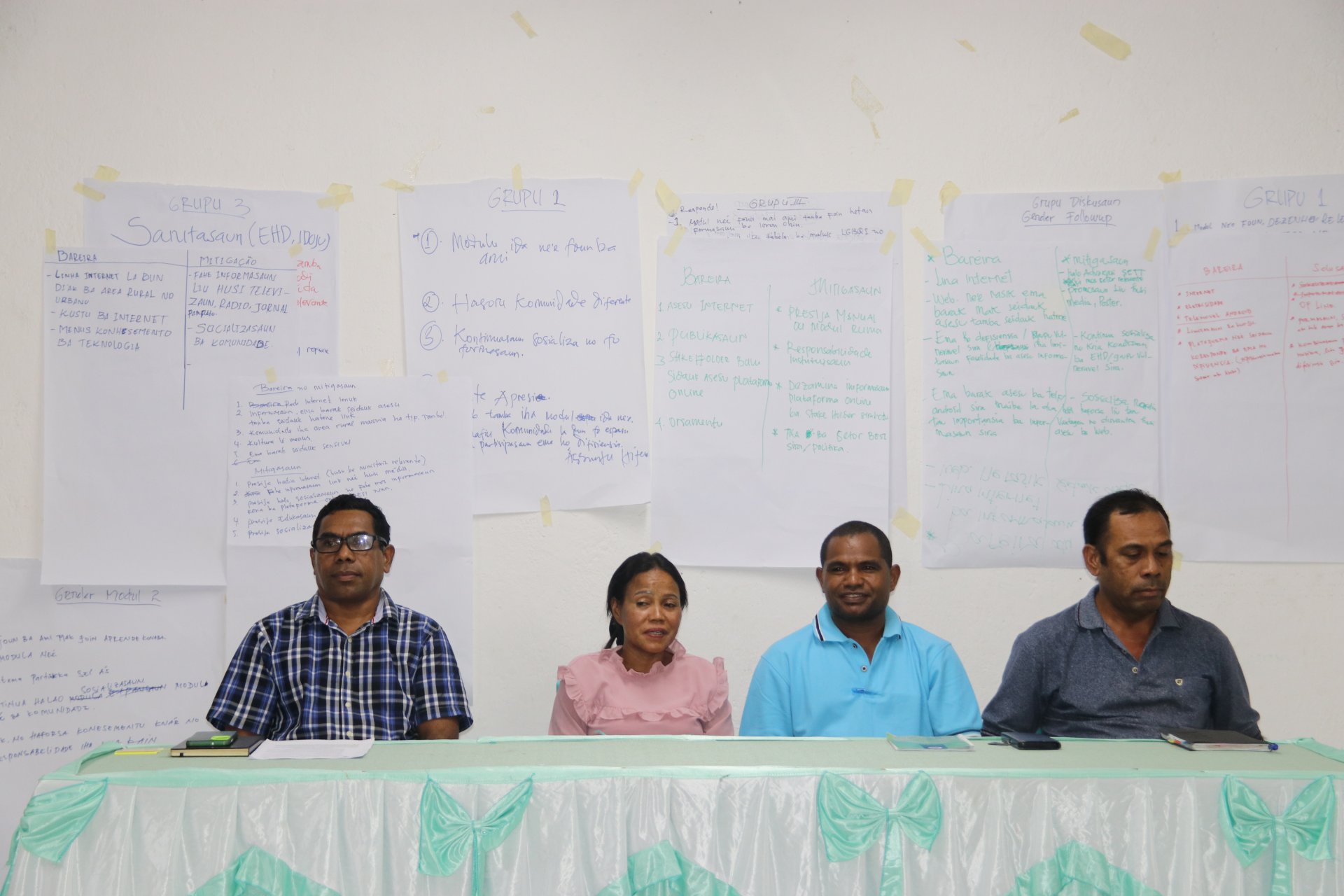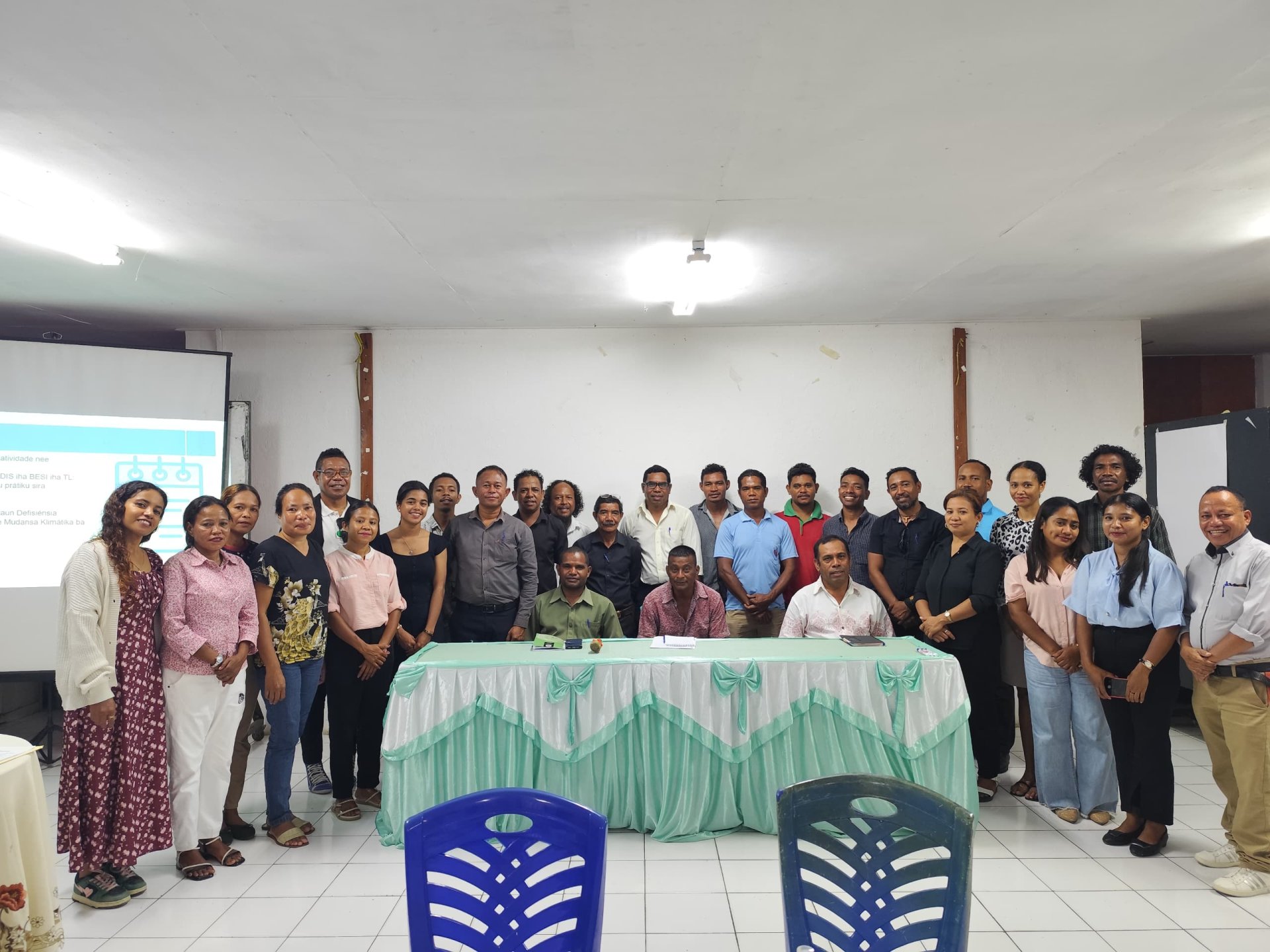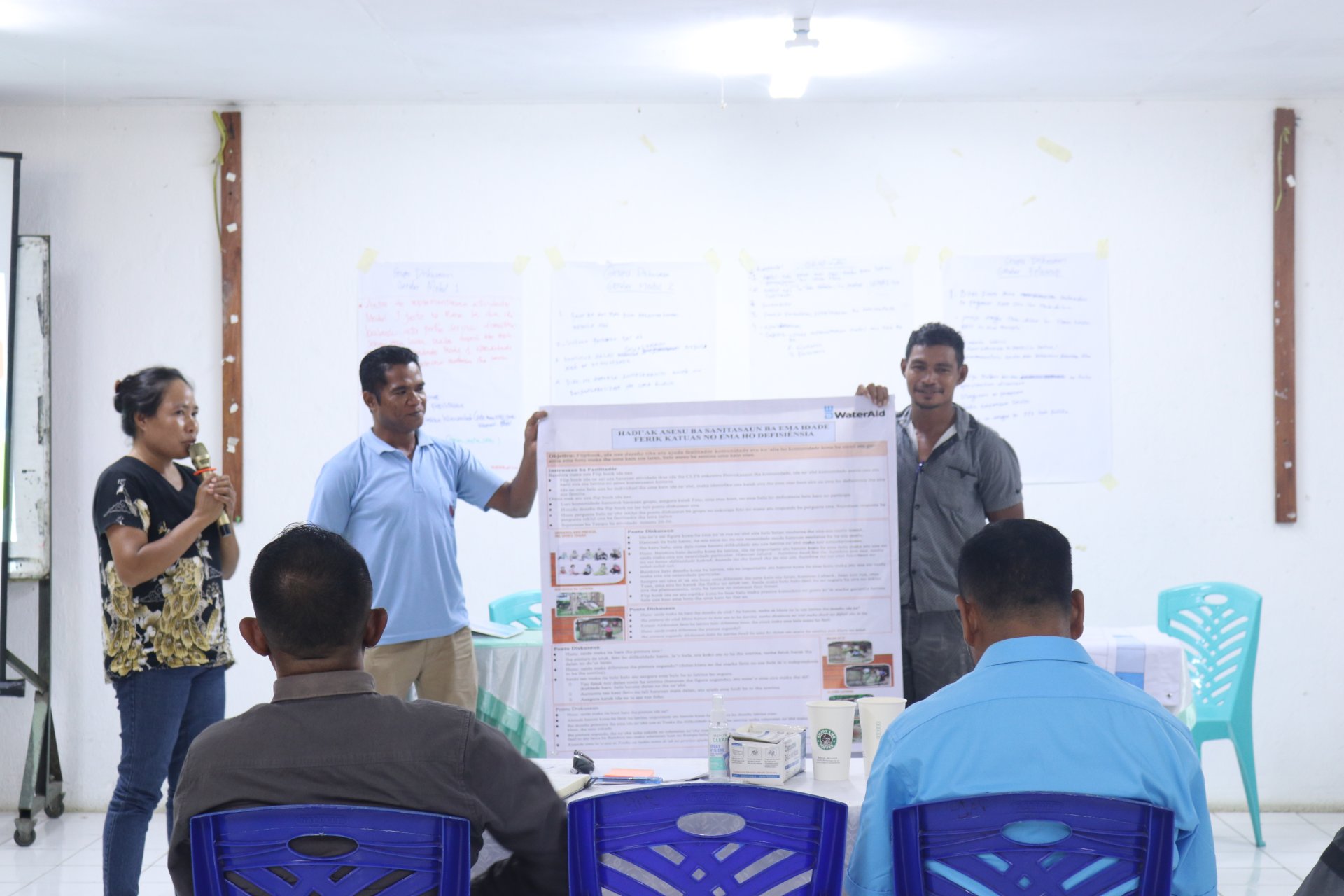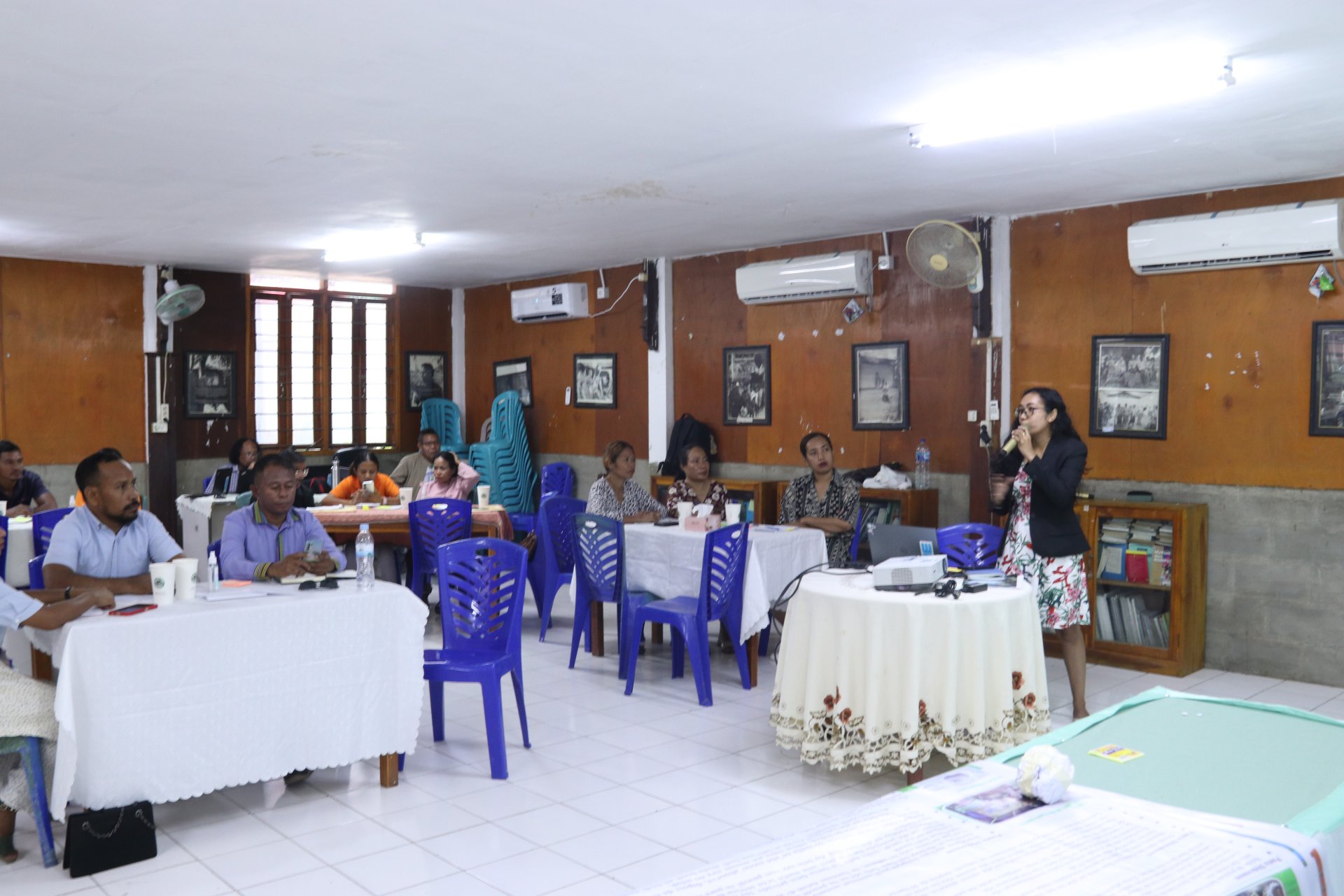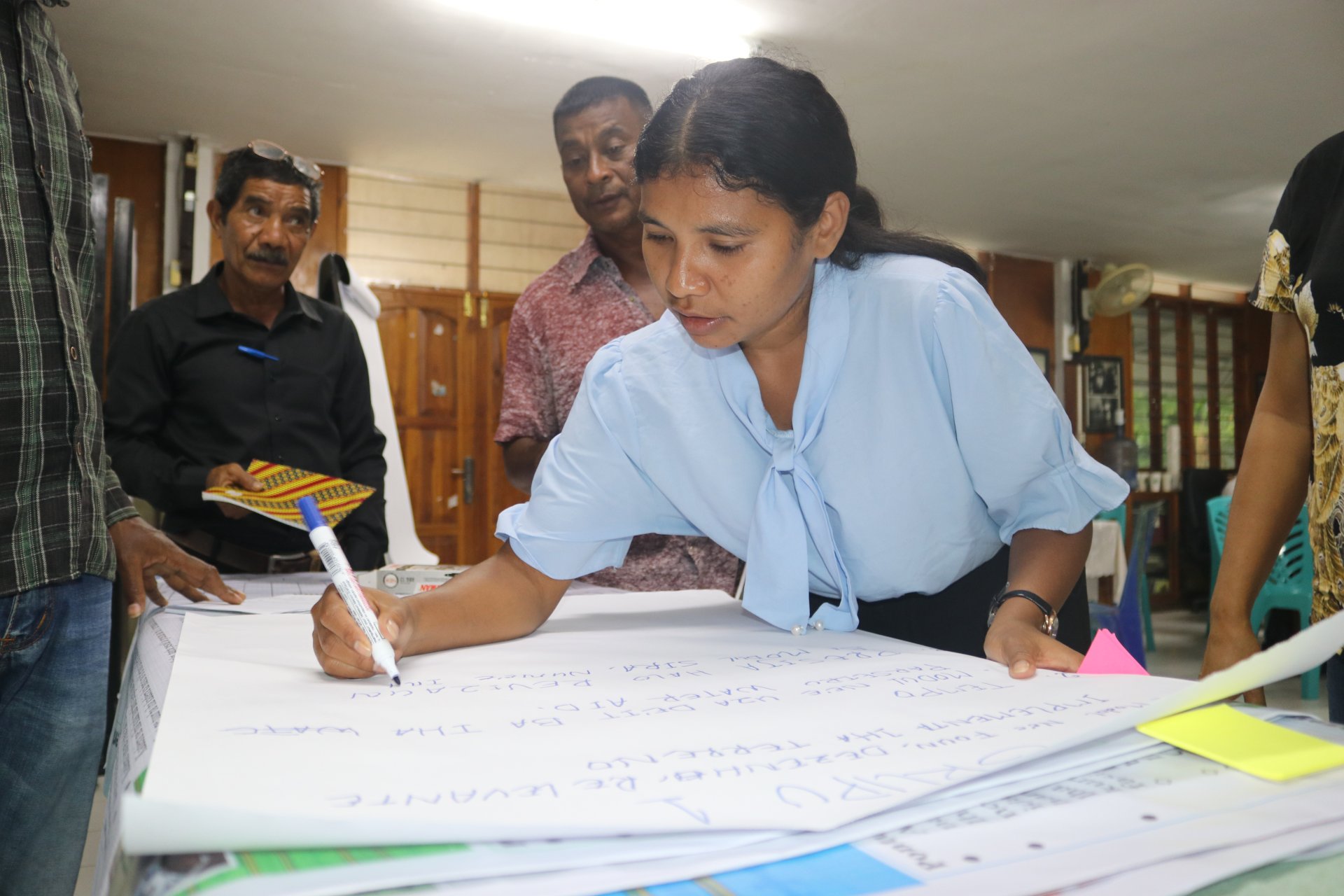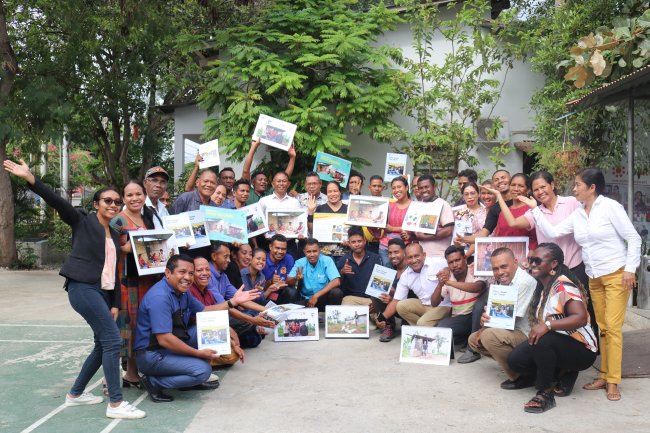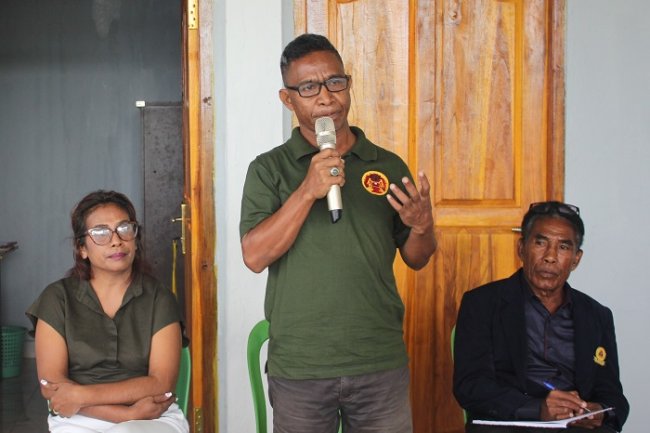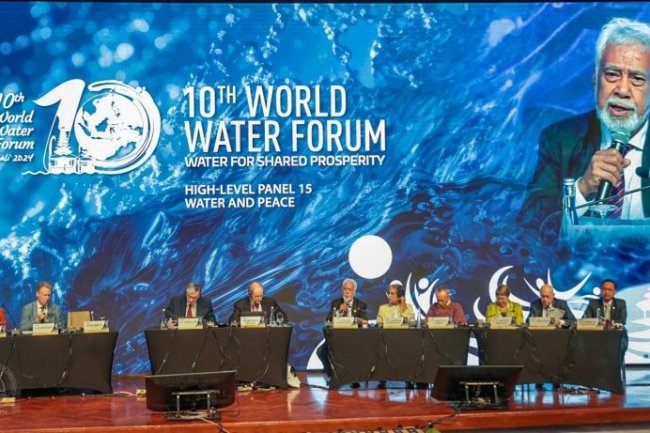Ensuring the inclusive WASH programs implementations through a GEDSI Tools Refresh Training Workshop to the GEDSI and WASH actors
The WaterAid team conducted the capacity need assessments with relevant sectors on GEDSI tools to understand more about what actions need to be taken to respond to the challenges and can better support the GEDSI and WASH actors from the planning, implementation, monitoring, and evaluation phase in both Manufahi and Liquica. The results of the assessment showed that the main action that needs to be done to improve the approach of GEDSI in the WASH project is to be able to organize refreshing training on the use of GEDSI and WASH tools that the WASH actors feel is a priority, such as the gender module, disability inclusion flipbook, community action plan guidelines, and PNDS guidelines.
Dili, on 18-19 of september, WaterAid Timor-Leste team organized 2 days refresh training that facilitated together with the implementating partners FHTL (facilitated Equity & Inclusive Flipbook session), FAKMAS and GFFTL (Gender Module session), and FPA (Communy Action Plan 1&2 sessions) in farol Dili.
The objectives of this two days refresh training to the GEDSI and WASH actors are to discuss on what challenges face in the implementation of GEDSI tools in WASH project, and how to address the challenges and improve the implementation, discuss and agree with the CAP agenda or process that considered GEDSI approach, including actor’s roles, and present the GEDSI and WASH package tools, and how to easy access to those tools through online platform BESI.TL.
The representative of WATL's Country Director, Mr. Tome Guterres on his opening speech stated that during two days workshop, it will help us to improve the existing GEDSI modules inlcuding the weaknesses to ensure the quality implementation of our programs in the field.
The Chief of Department of Centre of Environmental Education and Information on his opening speech expressed that WaterAid Timor-Leste's program are helpful for the community as it is integrated to the GEDSI and climate change.
The representative of the Director of DNRAS also said on his opening remark that DNRAS will continue to collaborate and support the programs running by the international NGOs like WaterAid Timor-Leste and PARTISIPA.
The workshop started by the safeguarding session facilitated by WaterAid Timor-Leste (WATL) and the brief presentation of the findings of GEDSI tools mapping and capacity needs assessment conducted by WATL's GEDSI officer.. The assessment's result showed that the main action that needs to be done to improve the approach of GEDSI in the WASH project is to be able to organize refreshing training on the use of GEDSI and WASH tools.
The GEDSI tools presented during these two dys workshop are the Community Actions Plan Guideline 1 and 2, Gender Module 1-3, Gender Module Follow-up, and Disability inclusion flip book.
The outcome of this 2 days trainingis the draft document of CAP cycle integrated to GEDSI and climate change aspects to be use in the filed by the GEDSI and WASH implementing actors.
Participated in these two days refresh training, the Directors of SMASA and the team from Manufahi and Liquica, DNRAS team, Centre of Environmental Education and Information, SEI Focal Point from national and Liquica, PNDS from Liquica and Manufahi, RHTO and the Implementing partners of WaterAid Timor-Leste such as FHTL, GFFTL, FAKMAS, and PERMATIL.
This activity is supported by the Australian Government through Water for Women fund.
